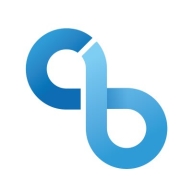

CloudBees and GitGuardian compete in the software delivery and security space. CloudBees holds the upper hand in scalability and CI/CD capabilities, making it ideal for large teams, while GitGuardian excels in secrets detection with high accuracy.
Features: CloudBees offers a robust CI/CD platform, scalability for large teams, and extensive tool integrations. It includes flexible automation for application delivery and supports multiple deployment environments. GitGuardian focuses on advanced secrets detection, providing rapid alerts and detailed remediation options. It is highly effective in protecting sensitive information in code repositories.
Room for Improvement: CloudBees could improve performance for large pipelines, speed up deployments, and streamline plugin management. Users suggest enhancing the interface and introducing AI features. GitGuardian could refine user management, improve integration with specific development tools, and ease the incident response process. Reducing false positives and improving onboarding controls would be beneficial.
Ease of Deployment and Customer Service: Both products are available across various cloud environments and support on-premises, public cloud, and private cloud deployments. CloudBees generally receives positive support feedback, but users face recurring plugin and versioning issues. GitGuardian users appreciate its reliability but wish for more efficient, real-time response support.
Pricing and ROI: CloudBees is premium-priced but offers strong ROI through comprehensive CI/CD solutions and security capabilities. It is considered valuable for those prioritizing robust automation. GitGuardian's pricing is reasonable for smaller teams; however, it might be costly for larger organizations. Its effectiveness in preventing data breaches justifies its cost as a critical security investment.
I can certainly say that we have saved significant time and resources in terms of people and automation.
The majority of our incidents for critical detectors and important secret types are remediated automatically or proactively by developers through GitGuardian's notification system, without security team involvement.
It effectively helps us with credentials security and has been performing satisfactorily.
I would rate their technical support a nine out of ten.
I would rate the technical support as excellent.
In terms of scalability, I would rate it around a ten out of ten, as it handles all the repositories and commit activity we have.
I would rate it a ten out of ten for scalability.
Currently, what GitGuardian Platform is doing works effectively.
We set up a lot of the repository, so GitGuardian is a required check.
The SaaS platform has experienced two significant moments of downtime or instability in the last six months, requiring notices and retrospectives.
I would rate the stability of the GitGuardian Platform as excellent with no downtimes.
Another thing that would be good to see is some more metrics on the usage of the GitGuardian pre-push hooks.
The self-healing activity by developers isn't reflected in the analytics, requiring us to collect this data ourselves.
We are looking for better metrics and audit data, wanting more features such as knowing which users are creating the most secrets or committing the most secrets, what repository, what directory, and who is not checking in secrets.
Overall, the secret detection sector is expensive, but we are happy with the value we get.
It's fairly priced, as it performs a lot of analysis and is a valuable tool.
One of the best features of the solution is the ability to use pre-push hooks.
A high number of our exposures are remediated by developers before security needs to step in, as the self-healing playbook process engages them automatically.
GitGuardian Platform performs the capability to detect secrets in real time exceptionally, as it activates from the commit and can detect it immediately.
| Product | Market Share (%) |
|---|---|
| GitGuardian Platform | 5.4% |
| CloudBees | 2.7% |
| Other | 91.9% |


| Company Size | Count |
|---|---|
| Small Business | 1 |
| Midsize Enterprise | 3 |
| Large Enterprise | 17 |
| Company Size | Count |
|---|---|
| Small Business | 10 |
| Midsize Enterprise | 9 |
| Large Enterprise | 13 |
CloudBees provides a highly scalable and secure platform that supports seamless integration and automation across multiple environments. It excels in managing Jenkins instances and offers flexible deployment options, enhancing efficiency for large teams.
CloudBees is recognized for its integration with Jenkins, SonarQube, and Ansible, allowing companies to leverage its robust automation capabilities for continuous integration and deployment. With its strong support for Docker and Kubernetes, teams benefit from streamlined code management and operational efficiency. Its scalable architecture, real-time feedback, and premium vendor support help manage large-scale applications and microservices. Despite its strengths, users report challenges with pipeline setup, service availability, and GUI accessibility, which suggest room for improvement in these areas.
What are the key features of CloudBees?
What benefits should users expect in reviews?
In tech and software industries, companies implement CloudBees for managing complex CI/CD pipelines. Its integration with DevOps tools facilitates automation and workflow optimization. Industries with large teams managing thousands of microservices use CloudBees to maintain high availability, streamline processes, and ensure security compliance, driving efficient production workflows.
GitGuardian is a comprehensive platform focused on enhancing Non-Human Identity security by integrating Secrets Security and Secrets Observability to detect and manage secrets across development environments.
As cybersecurity threats increasingly target NHIs like service accounts and applications, GitGuardian offers a robust solution by supporting over 450 types of secrets and deploying honeytokens for additional defense. Trusted by leading organizations and developers, its monitoring and quick alert system enable effective detection and management of sensitive data, strengthening operational security across platforms.
What are the key features of GitGuardian?In the tech industry, GitGuardian is employed to safeguard APIs and sensitive credentials across code repositories like GitHub. Companies benefit from instant alerts and integrations with tools like Slack, effectively managing risks and enhancing security policies. While popular in sectors dependent on development agility, there is room for further improvement in customization and integration to meet specific industry needs.
We monitor all DevSecOps reviews to prevent fraudulent reviews and keep review quality high. We do not post reviews by company employees or direct competitors. We validate each review for authenticity via cross-reference with LinkedIn, and personal follow-up with the reviewer when necessary.